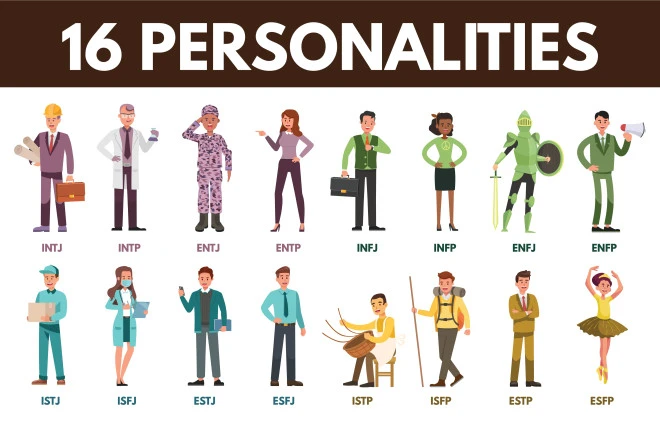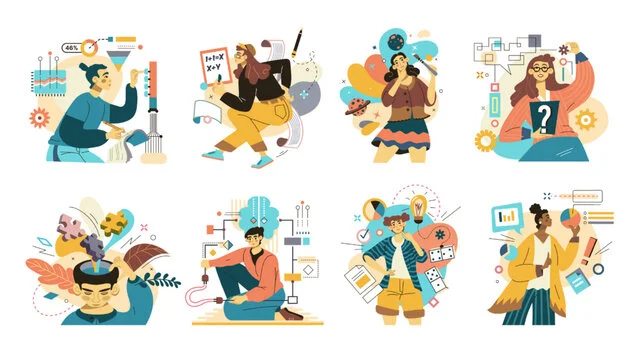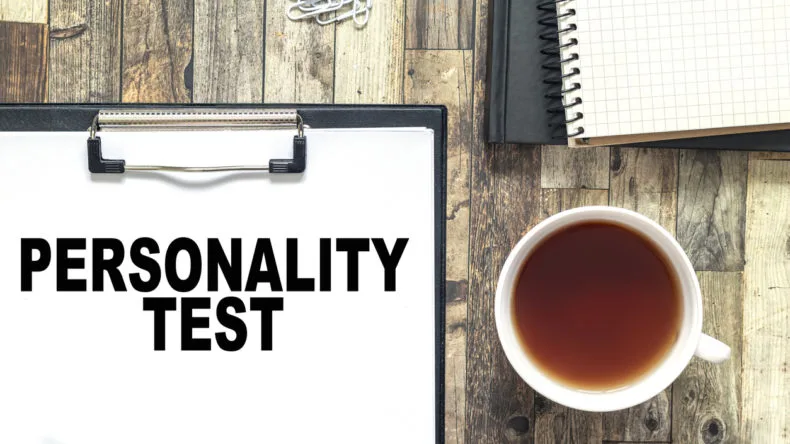Personality is a concept that we informally measure and describe every day. We frequently make references to numerous facets of a person’s personality when we talk about ourselves or others. For example, we may refer a someone as curious, kind, or gloomy. However, evaluations of personality made by psychologists are more methodical and scientific.
Personality or character qualities are determined using personality tests. In most cases, these tests are given online as a part of the hiring process. There are several formats available for these tests, with questionnaires being the most common. Personality is vital in determining if you have the excitement and motivation that the company seeks. Video interviews can be used to deliver online personality tests in a more engaging and interactive way. It also affects your personality, attitude, and general work style and how well you will fit into a firm. In the majority of workplaces, the personalities of those involved affect the organization’s daily performance.
Personality tests can assist in clarifying a medical diagnosis, direct therapeutic approaches, and anticipate how people will react in specific scenarios.
Organizations increasingly rely on sophisticated tools like personality tests to make recruiting decisions and establish high-performing teams. One of the numerous benefits of personality tests is that they give hiring managers details about a candidate’s motivations, values, and work preferences so they can determine whether they are a suitable match for the position. Online personality tests can enhance your career by helping you identify your strengths, weaknesses, and personality traits, which can guide you toward careers and jobs that are a good fit for you.
Selecting the ideal candidate for the position is essential in today’s competitive economy, where everyone matters and the time it takes to recruit them. The advantages of using personality test questions in the hiring process include the fact that they not only offer a great way to choose candidates at the screening stage, but that the same information can also be used to develop employees for the suitable position throughout their career trajectory.
Benefits of a personality test

There is no doubting that personality tests offer benefits for businesses. They provide valuable insight into how an applicant’s personality will effect their work behavior, assisting recruiters in understanding how a prospect will communicate with others, solve problems, and manage their emotions at work.
The advantages of employing personality inventories include improved applicant knowledge, a fair recruiting process, a quicker hiring time, increased ROI, detection of undesirable personality traits, and a higher possibility of hiring the best candidate.
The following are a few advantages of personality tests:
1. Understand Candidates Better
Employers can detect the necessary personality attributes in potential applicants through objective personality exams. The recruiter may narrow the pool of candidates for a particular job role using underlying personality qualities. For instance, if you’re looking to recruit a business analyst, you’ll be looking for attributes like analytical thinking, curiosity, quick thinking, tenacity, outstanding spoken English abilities, empathy, and the capacity to maintain composure. This will help you identify your strengths and weaknesses in public speaking skills, so you can develop a more effective presentation style. Experts in talent acquisition may use the benefits of employing personality tests in the recruiting process for efficient recruitment.
2. Faster Recruitment Process
It is common knowledge that it may take some time to discover the right candidate for the position. Each organization has a different hiring process, but hiring someone generally takes two weeks. The findings of a personality test can help predict how well someone will do their job duties, making it more straightforward for managers or supervisors to decide whether to promote someone or raise their salary based on skill sets rather than just gut feelings.
It expedites and makes the hiring process more convenient. Suitable applicants may be selected out of the online assessment process, decreasing the number of unnecessary interviews. Since the results of personality tests may be obtained in real-time, recruiting applicants takes less time.
3. Eliminates Bias

The likelihood of unconscious bias in selecting candidates for a work post is significantly reduced due to personality testing. Employers can choose candidates reasonably by considering their performance in the necessary personality qualities. The ideal applicant for the position possesses the required skill sets. Candidates are evaluated for employment based on various criteria, and the personality evaluation gives transparent findings.
4. Spot the Dark Personality Traits
Employers can use the personality test to identify negative personality qualities, including opportunism, self-obsession, insensitivity, temperamental, and impulsiveness, and base hiring choices on them. There are high-risk occupations where a worker could be in charge of a client’s life or the security of a valuable item; other fields and professions, like teaching and business, that call for extreme prudence. Sometimes, a cab driver misbehaves with a passenger or drives too fast.
5. Cost-Effective
Personality assessments are affordable and straightforward to use. A trustworthy personality test may reveal details about a person in hours that could take an organization months to learn. These tests lower or lessen your odds of making poor recruits, offering a favorable return on investment. Poor hiring may substantially negatively impact the efficiency and well-being of your other employees, in addition to being an expensive investment.
6. For the employee: Gain Deep Insight into A Candidate’s Potential
A personality test identifies possible personality traits, giving HR professionals a greater understanding of preparing employees for future responsibilities. For instance, a person with substantial concentration, critical thinking skills, stress management talents, etc., may be given a strategic leadership position.
There are even more benefits to taking personality tests. In reality, they are used to evaluate an employee’s adaptability, the preferred method of learning, and response to change. These data insights may be utilized to create the best hiring decisions for organizational planning, leadership development, and other areas.
7. More effective interview process
Good pre-employment personality tests will enable you to quickly build a customized interview experience for each candidate, depending on the results of the tests. Put another way, and they will help you decide which questions to ask each prospect. They can also assist you in eliminating individuals who lack the qualities required for a particular post. You will only waste time interviewing qualified candidates that way.
These tests can also make you more objective since you will take your time accepting qualified applicants who exhibit the necessary abilities and character qualities for the job simply because they became nervous or afraid during the interview. Particularly with employing introverts, this is true.
Disadvantages of personality tests

1. Candidates can lie
Sometimes the wrong response might be given to a question. It could be not easy to sift out individuals who are not answering honestly because this calls into question the validity of the exam. Some applicants may choose the best response they feel would satisfy the interviewer.
There will be a big number of applicants who answer exam questions truthfully. That does not necessarily mean they are a good fit for the available position. This is why using a personality test to determine a candidate’s value is not a good idea.
2. It could eliminate qualified candidates
There are several occupations for which there is no widely accepted personality type. These exams may also omit outstanding, unconventional individuals.
3. It could lead to inaccurate outcomes
Results are only sometimes reliable since applicants could give answers based more on what they believe the company wants than their genuine personalities.
4. The test’s objectives may conflict with your hiring criteria
Today’s most popular exams were not all created to be utilized in recruiting decisions. For instance, the Myers-Briggs Type Indicator was developed for training and career development, not employment. As a result, applying it throughout the employment process may provide biased findings.
5. There may be legal risks
Claims of discrimination may follow from such evaluations. Because their test discriminated against people with mental disorders and broke the Americans with Disabilities Act (ADA), some people have successfully sued companies. Questions such as, “Over the day, do you experience many mood changes?” or “Do you have bipolar disorder or depression?” may prejudice those with these conditions. Such inquiries on your company’s personality test may invite legal action in the future.
6. It could lead to a need for more diversity at work
A lack of variety may arise if you utilize these to match people’s personalities to those of others in your company. It’s vital to consider whether these test findings would result in employing the same personality types again if we want a workplace with at least some variety.
7. Confirmation Bias
The same reason many feel horoscopes “work” also applies to why people think personality tests “work.” When we believe in the accuracy of a tool that purports to provide us with self-awareness, we naturally seek proof of that knowledge.
Most likely, a personality test will confirm some of the things we already know about ourselves, leading us to conclude, “This must be true.”
Human nature is to search for establishing evidence rather than challenge the integrity of the material when the assessment presents “new” information we didn’t already know. People who take personality evaluations are inclined to believe they are accurate since this is the confirmation bias at work. It’s challenging to escape the mental fallacy of “If some of it is true, then the whole thing must be true.”
Conclusion
Online personality assessments offer advantages and disadvantages. They can provide people with insightful information about their personality characteristics and preferences, assisting them in developing a better understanding of themselves and informing their decisions in their personal and professional lives. Nevertheless, online tests’ validity and reliability, as well as the possibility of abuse and incorrect result interpretation, are questioned. It is critical to approach online personality tests with caution and to use them as a tool for self-discovery rather than a definitive judgment.




